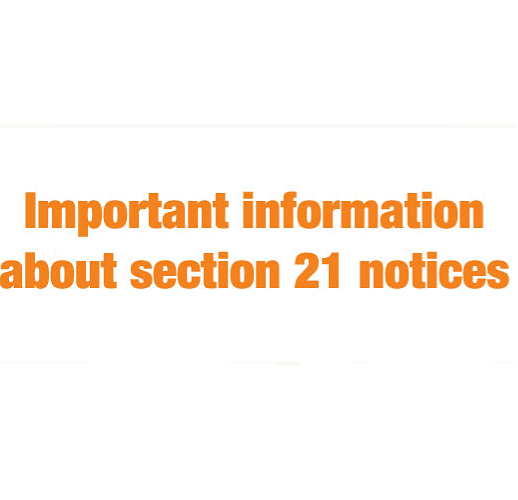Understanding Section 21 Notices
Legal Guidance
A Section 21 notice, also known as a "no-fault eviction" notice, is a legal document used by landlords in the UK to regain possession of a property at the end of an assured shorthold tenancy (AST) without specifying a reason for eviction. However, the process requires strict adherence to local laws and regulations. At Resolve Solicitors, we specialize in providing expert guidance to both landlords and tenants dealing with Section 21 notices, ensuring that their rights are protected and the process is carried out fairly and legally.

- No-Fault Eviction: Section 21 notices are issued without specifying a reason, allowing landlords to seek possession at the end of an AST.
- Notice Requirements: The formal written notice served by the landlord to inform the tenant of the intention to terminate the tenancy.
- Notice Period: The length of notice required depends on the type of AST and local laws.
- Court Proceedings: If the tenant does not vacate voluntarily, landlords must initiate legal action through the courts to obtain a possession order.
- Enforcement: The process of physically removing the tenant from the property if they do not comply with the possession order.
- End of AST: Section 21 notices are typically used when the fixed-term of an AST is coming to an end.
- Notice Period: Landlords must provide the tenant with a specific notice period before seeking possession.
- Local Laws: Regulations regarding Section 21 notices can vary by jurisdiction, so it’s essential to understand local requirements.
- Legal Assessment: Evaluating the grounds for issuing a Section 21 notice and advising on the best course of action.
- Notice Preparation: Assisting landlords in preparing and serving valid Section 21 notices that comply with local laws.
- Court Representation: Representing landlords in court proceedings related to Section 21 notices and possession orders.
- Tenant Rights: Advising tenants on their rights and defenses when facing a Section 21 notice.
- Negotiation and Mediation: Exploring alternatives to eviction, such as negotiation or mediation, to reach amicable resolutions.
FAQ's
No, Section 21 notices cannot be served during the first four months of the tenancy and must comply with specific notice periods.
The notice period varies depending on the type of AST and local laws, but it's typically at least two months.
Yes, tenants can challenge Section 21 notices if they believe they are not valid or have legal defenses.
Tenants have the right to defend themselves in court, challenge improper notices, and request reasonable accommodations.
The duration varies depending on factors like the notice period, local court procedures, and tenant defenses.
Yes, negotiation or mediation can be effective in reaching settlement agreements to avoid eviction.
Contact us directly, and our experienced team will provide the guidance and support needed to navigate Section 21 notice proceedings effectively.



